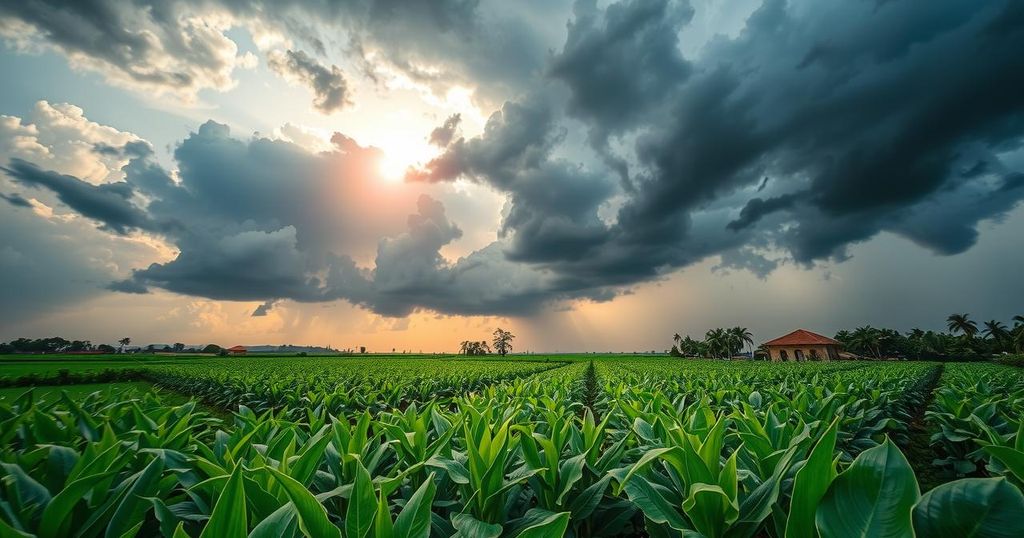Tropical crop prices for commodities—including coffee, cocoa, and rubber—have significantly surged, yet smallholder farmers are unable to capitalize on these gains due to severe climate impacts on production. The concentrated nature of production in a few countries exacerbates vulnerabilities, making farmers susceptible to fluctuating weather conditions. Adaptation strategies are limited by economic constraints, with most benefits from rising prices accruing to large processors rather than the farmers themselves.
Recent fluctuations in the commodities market have seen tropical crops such as coffee, cocoa, and rubber experiencing significant price increases. Despite the economic benefits to traders, smallholder farmers, who cultivate these crops, face numerous challenges due to climate change’s detrimental effects on production. The concentration of tropical crop production in a limited number of countries means that adverse weather events can disrupt global supply and pricing.
With just six nations accounting for the majority of the world’s palm oil, rubber, cocoa beans, and coffee productions, extreme weather events like drought and floods directly threaten crop yields. For instance, Brazil is currently grappling with severe drought that hinders coffee flowering and impacts agricultural electricity production.
Furthermore, the interconnectedness of weather patterns across different continents is exacerbating the situation. As climate change furthers the volatility of tropical agriculture—including increased risks of pest proliferation and decreased yields—many tropical plant species may face existential threats. A study suggests that a significant number of tropical plant species will find it increasingly difficult to reproduce due to rising temperatures by the year 2070.
Moreover, smallholder farmers, who constitute a large segment of the agricultural workforce, lack the resources necessary for effective adaptation strategies. They rely on cash crops, struggling in an environment where price fluctuations often favor larger processors and corporations over individual producers.
In light of current price surges, it is vital to acknowledge that smallholders may not benefit as much as intended, given their limited market access and bargaining power. While temporary price increases could stimulate investment in more sustainable practices, a lack of capital among these farmers restricts their ability to adapt and thrive under changing climate conditions.
In conclusion, while tropical crop prices are on the rise, the reality for those who grow these crops is stark, as they face the dual threats of climate change and economic marginalization. The benefits of higher commodity prices seldom reach the farmers themselves, who remain vulnerable and under-supported, suggesting an urgent need for intervention to ensure equitable growth in the face of climate challenges.
In summary, despite the surge in prices of tropical crops benefiting commodity traders, smallholder farmers are grappling with significant challenges due to climatic changes. The concentration of production in specific nations makes them particularly vulnerable to weather-related disruptions, and the economic conditions leave farmers with limited capacities for adaptation. Consequently, the long-term sustainability of both farmers and crop production is in jeopardy, necessitating focused attention on equitable solutions.
Original Source: www.biznews.com






